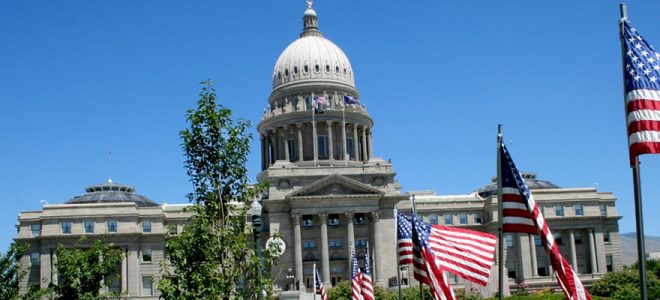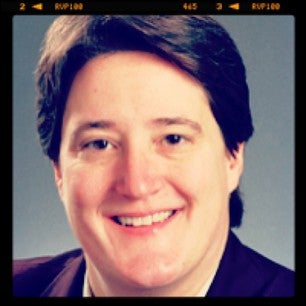

Stephanie L. Witt writes about Idaho, city and county governments in the West, human resource management and public administration. She teaches public policy at Boise State University.
MY OPPONENT, NOT MY ENEMY
These days, I look back fondly to a statement I heard Senator Bob Dole (R-KS) make in his concession speech at the close of the 1996 Presidential election. He said, “I’ve said repeatedly in this campaign that the President was my opponent and not my enemy” (emphasis added). How long ago that statement seems now.
Now, it seems to me, is a time when civility in speech, especially in our political realm, is at an all time low. Congress is more polarized than in recent memory and it is now common to see votes in which NO members vote with the opposite party. The President forgoes formal speeches in favor of tweets that attack those he dislikes with insults and is insulted back in kind. We have now become accustomed to the cable news format of “policy discussion” that is little more than a group of people who disagree with each other shouting back and forth. Campuses are erupting in demonstrations over whether or not certain individuals and their viewpoints should be allowed to speak. Studies from political scientists show us that we are increasingly unwilling to spend time with people from the “other party.”
OPPONENTS VS. ENEMIES
I think the distinction between opponents and enemies in Dole’s statement is critical. We use the term opponent to describe a person taking an opposite position from ours in a contest, debate, or conflict. In contests, debates, and even conflicts, there are procedural rules and a beginning and an end to the event. My status as an opponent should end when the contest is over. In sports, we teach kids to shake hands after the game. During the contest there usually are limits to rude or violent behavior, with penalties assessed to contest participants who violate those rules. Basketball, for example, has technical fouls and football has unsportsmanlike conduct penalties. Athletes form off-the-field friendships and no one questions whether they will compete fiercely during the game.
Senator Dole’s use of the term opponent hearkens back to the time when members of Congress debated policies and tactics in committee and on the floor of the House and Senate, but maintained civil working relationships with members from the opposite party.Senator Dole’s use of the term opponent hearkens back to the time when members of Congress debated policies and tactics in committee and on the floor of the House and Senate, but maintained civil working relationships with members from the opposite party. In fact, in August of 1996, President Clinton, a Democrat, had worked with Democrats and Republicans in Congress to pass The Personal Responsibility and Work Opportunity Reconciliation Act of 1996 (P.L. 104-193), also known as Welfare Reform. As recounted in by longtime Washington insider Hedrick Smith in The Power Game, Democrat and liberal Senator Ted Kennedy (D-MA) often played basketball with Republican, conservative, Senator Orrin Hatch (R-UT). Smith also looked back fondly to a time when members of Congress of both parties and their families socialized together, noting that it was easier to pick up a phone and reach out to the other party when you had a civil relationship with the other members as people.
The term enemy, on the other hand, leaves little room for compromise or cooperation. In fact, to aid or fraternize with one’s enemy is typically considered treasonous. To refuse to cooperate or compromise with the “other side” in a legislative setting makes the passage of meaningful policy much more difficult. This difficulty may be simply one of numbers. That is, I need some of the “other guys” to get enough votes to make a majority. But the difficulty may also lie in the fact that when I shut myself off completely from the other side, I also shut myself off from being open to new possibilities, new ideas, new potential compromises that might be better than anything “my side” currently has. In order for a democracy’s marketplace of ideas to function, people have to be willing to exchange their ideas with those that may be on the other side.
ROOTS OF TODAY’S INCIVILITY
The evolution of the mass media and the rise of social media makes it easier to avoid contact with any information with which I disagree. The evolution of the mass media and the rise of social media makes it easier to avoid contact with any information with which I disagree. The multiplicity of TV channels and Internet news providers allows us to segment off into media outlets that echo our point of view. Are you more Fox News or MSNBC? Sean Hannity or Rachel Maddow? Rush Limbaugh or NPR? Breitbart or Huffpost? Is your cousin annoying you with posts you disagree with on Facebook? Hide Him! It is easier than ever to avoid engaging with others in a civil way about our disagreements. Why would I ever want to listen to my enemy? Bill Bishop argues that we sort ourselves out not only in our media choices but in where we live. In The Big Sort, Bishop documents that Americans have moved and sorted themselves literally into enclaves of those most like them.
I fear also that thinking of those we disagree with as enemies encourages the “anything goes” types of actions in which candidates make outlandish accusations about each other, which they use while stumping on the campaign trail and to generate vicious attack ads. In the 2016 Presidential election, candidate Trump referred to candidate Clinton as “Crooked Hillary.” Candidate Clinton referred to Trump supporters as “a basket of deplorables.” As I watch the political landscape these days, it does seem to me that there are no rules. Why would an enemy deserve civility? After all, isn’t anything fair in war?
HOPE FOR THE FUTURE
But I don’t believe we are at war with those with whom we disagree. We disagree about issues: we are opponents in the marketplace of ideas, not enemies. One event held on the Boise State campus ahead of the 2004 presidential election helped me understand that fact. Boise State was one of several locations nationwide chosen for an event called Deliberation Day. Sponsored by PBS, the event invited a hundred randomly chosen Boise residents to come to campus and discuss issues relevant to the upcoming election: the economy and education. These citizens spent the day in small groups discussing the issues. I had been asked to be a moderator for one of these small groups. I dreaded the event because I feared a daylong shouting session. What I found instead, however, was that participants were willing and able to discuss their views and ideas in a civil way. All of us were surprised at how much we agreed on rather than how much we disagreed. We listened to each other and we learned a little bit about how others see things. In other words, we interacted in a civil way about ideas. That one event did more to restore my faith in the democratic process than almost anything else in my life. I came away with the understanding that people can interact, agree, disagree, compromise, learn from each other, and then have a sandwich at lunch and talk football.
I still believe this kind of civil discourse is possible, but we have to provide the places for this to happen, and we need this civil discourse modeled for us from our elected officials.I still believe this kind of civil discourse is possible, but we have to provide the places for this to happen, and we need this civil discourse modeled for us from our elected officials. Civil discourse is nice in and of itself, but it is critical if we are to govern well. Effective public sector leaders recognize that to govern is quite different from running for election. To govern well includes everyone, not just those we agree with or those who voted for us. Sometimes the best ideas for our nation and our state come from our opponents. Sometimes our opponents hone and adapt our ideas to make them better. To govern well, to me, means to serve the best interests of our whole nation and state, and to do that, we cannot afford to consider some of us as enemies. In the interest of governing, we should engage our opponents, civilly, in the marketplace of ideas.